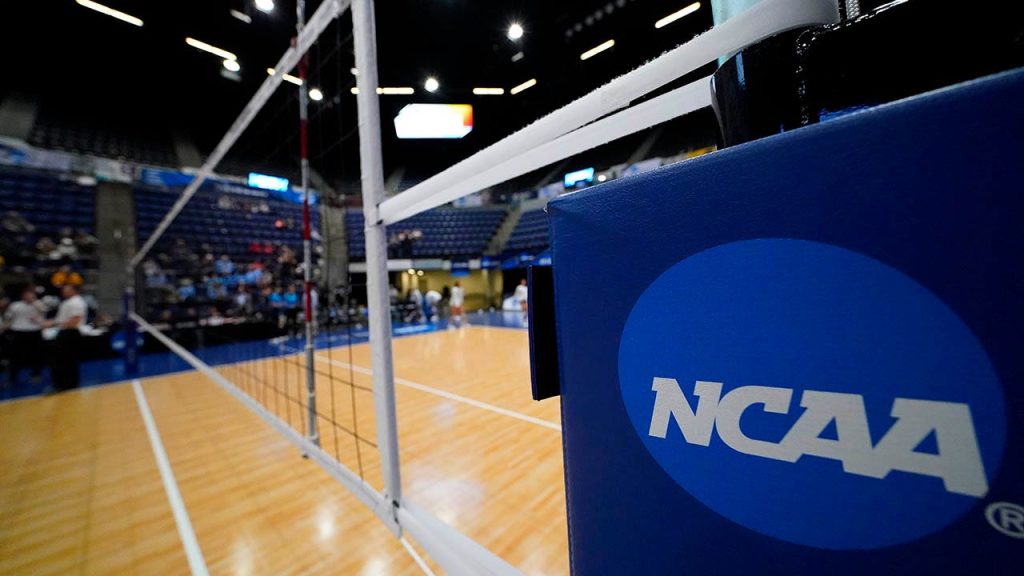Macey Boggs, a former University of Wyoming volleyball player, testified before the Wyoming state senate, advocating for a bill restricting athletic participation to an individual’s biological sex at birth. Boggs’s testimony stemmed from her team’s experience forfeiting two matches against San Jose State University (SJSU) during the 2024 season due to the inclusion of a transgender athlete, Blaire Fleming, on the SJSU team. The forfeitures, a protest against what Boggs and her teammates perceived as an unfair competitive environment and a safety concern, cost the University of Wyoming team a place in the Mountain West Tournament, effectively ending Boggs’s collegiate career. She argued that female athletes deserve to compete against other biological females, emphasizing that the issue transcended wins and losses and extended to the fundamental respect and safety of women in sports.
Boggs’s testimony underscored the emotional toll of the situation. She described feeling as though her team’s safety concerns were dismissed and that they were pressured to remain silent for the benefit of Fleming. This sense of injustice fueled her plea to Wyoming legislators to protect future female athletes by enacting legislation that would prevent similar scenarios. The bill, sponsored by state Senator Wendy Schuler, passed the Senate Education Committee. This legislative action places Wyoming among a growing number of states with laws restricting transgender athletes’ participation in women’s sports, reflecting a broader national debate on the issue. Boggs hopes her experience will serve as a catalyst for similar legislation at both the state and national levels.
The controversy surrounding Blaire Fleming’s participation in women’s volleyball has ignited a larger debate regarding transgender athletes in sports. Fleming’s dominance on the court has raised concerns among some women’s rights groups and athletes who argue that transgender women have an inherent physical advantage over cisgender women, creating an uneven playing field. This perspective often emphasizes physiological differences between the sexes, arguing that these differences provide an insurmountable advantage, regardless of hormone therapy or other mitigating factors. The competing viewpoint emphasizes the importance of inclusion and the right of transgender individuals to participate in sports consistent with their gender identity. This side argues that excluding transgender athletes is discriminatory and harmful, and that existing regulations and policies, such as those regarding hormone therapy, sufficiently address any competitive imbalances.
The lawsuit filed by Boggs and ten other current and former Mountain West volleyball players, along with a former SJSU assistant coach, highlights the complex legal and ethical dimensions of this issue. The lawsuit alleges discriminatory treatment and a hostile environment at SJSU, further emphasizing the contention surrounding Fleming’s inclusion on the team. The players claim they were pressured to accept Fleming’s presence on the team and to remain silent about their concerns. The inclusion of former SJSU assistant coach Melissa Batie-Smoose, who filed a Title IX complaint alleging preferential treatment for Fleming, adds another layer to the legal battle.
Riley Gaines, a former NCAA swimmer and outspoken advocate against transgender inclusion in women’s sports, provided further insight into the experiences of the SJSU volleyball players. Based on conversations with the players, Gaines described a climate of fear and emotional manipulation, alleging that the athletes were pressured into silence and made to feel as though they were the problem. She highlighted the lack of administrative support for the players, with the exception of Boise State University, further illustrating the isolation and vulnerability these athletes felt. This account reinforces the narrative of a power imbalance, where the athletes felt silenced and intimidated by the university administration.
Marshi Smith, co-founder of the Independent Council on Women’s Sports, corroborated Gaines’s account, testifying that the players involved in the lawsuit feared retaliation from SJSU if they spoke out against transgender inclusion. This fear of reprisal, whether through scholarship loss or team expulsion, underscores the pressure athletes face to conform to institutional policies, even if those policies conflict with their personal beliefs or safety concerns. The alleged silencing of these athletes adds another dimension to the debate, raising questions about freedom of speech and the right to express dissent within the context of collegiate athletics.
The repercussions of the SJSU transgender volleyball controversy extend beyond the legal realm. Louisiana Tech head volleyball coach Amber McCray confirmed her team’s unawareness of Fleming’s biological sex prior to their match, highlighting a lack of transparency and communication surrounding the issue. Louisiana Tech athletic director Ryan Ivey suggested that had they known, they would have pursued a different course of action, implying a potential forfeit had the information been disclosed. This lack of transparency underscores the challenges faced by teams and athletes navigating the evolving landscape of transgender inclusion in sports. The exodus of players from the SJSU volleyball program, with nearly every eligible player entering the transfer portal, further demonstrates the far-reaching impact of the controversy. This exodus suggests a deeply fractured team environment and raises questions about the long-term sustainability of the program under the current circumstances. The situation at SJSU serves as a microcosm of the broader debate, highlighting the complex interplay of athletic competition, gender identity, and individual rights.

